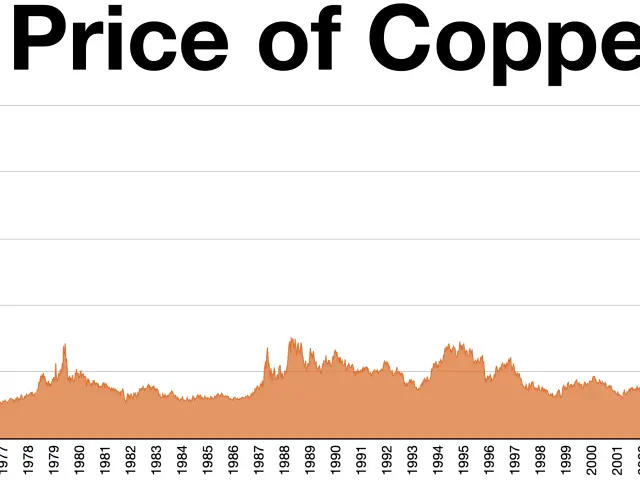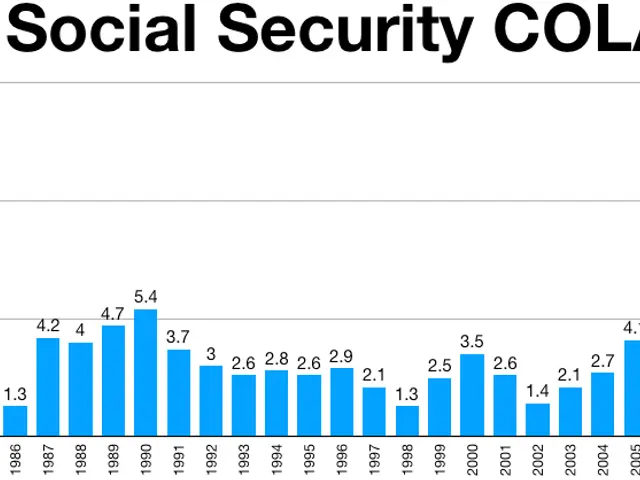Rapid Accumulation of Wealth Demands These 10 Sacrifices
Self-made millionaires have a unique approach to wealth-building, prioritizing financial growth over comfort and convenience. This approach requires intentionality, resilience, and a willingness to make trade-offs that may feel restrictive in the short term but lead to exponential wealth growth in the long run.
Essential Trade-offs for Wealth-Building
- Budgeting Rigorously: Self-made millionaires track and assign every dollar a purpose, prioritizing financial control over spending comfort. This rigorous budgeting helps prevent unnecessary spending and fosters a sense of financial freedom.
- Investing and Income Diversification: Rather than relying solely on a paycheck, these individuals develop side businesses, invest in stocks or real estate, and create multiple cash flows. This diversification helps them escape paycheck dependence and build a solid financial foundation.
- Accepting Short-Term Discomfort for Long-Term Gain: Self-made millionaires are willing to take calculated, researched risks and are resilient to failure. They view setbacks as learning opportunities rather than defeats.
- Forging Luxury or Convenience to Save and Invest: To save and invest, they may forego traditional money-consuming routines, such as haggling at dealerships, to save time and focus on value creation.
- Investing Time in Learning and Building Leverage: Self-made millionaires invest their time in learning and building leverage, creating digital products or scalable services that require time and effort upfront but lead to exponential income later.
- Avoiding Impulsive Spending: They consciously avoid mindless or emotional expenses, focusing instead on fund allocation that promotes wealth growth.
- Prioritizing Long-Term Investment Strategies: While being open to innovation, they respect conventional wisdom about reliable, long-term growth assets like index funds and steady diversification.
- Saying No to Social Pressure or Family Obligations to Invest: They carefully vet investments and avoid being swayed by unverified pitches from relatives or friends.
- Trading Leisure or Comfort Time for Work or Business Growth: They invest hours into growing their ventures or acquiring skills that generate wealth rather than immediate relaxation.
- Putting Wealth Management Ahead of Lifestyle Inflation: They resist upgrading their lifestyle proportionally as they earn more, choosing instead to reinvest or save.
These trade-offs illustrate a mindset where delayed gratification, intentional budgeting, resilience to risk, multiple income streams, and disciplined investing significantly outweigh temporary comfort or the convenience of ease, thereby accelerating their wealth-building journey.
A Nuanced Approach to Safety Nets
Financial experts recommend more nuanced approaches to safety nets, such as maintaining smaller cash reserves while establishing backup credit lines for emergencies.
Evaluating Opportunity Cost
The wealth-building mindset evaluates each expense against its opportunity cost as potential investment capital. Eliminating just $500 monthly in non-essential spending and investing it instead could grow to over $175,000 in 15 years at average market returns.
Balancing Present Quality of Life with Future Financial Potential
Building wealth quickly requires sacrifices that most people aren't willing to make, prioritizing long-term financial freedom over short-term convenience, comfort, or social approval. However, the most successful wealth-builders find a personally sustainable approach that balances present quality of life with future financial potential.
Case Studies
Sara Blakely, the founder of Spanx, built her company into a billion-dollar empire while working around the clock in its early years. Many physicians, attorneys, and finance professionals endure intensive early-career phases that later enable greater autonomy and compensation.
The ultimate goal of these sacrifices is to create the financial foundation that provides greater freedom, security, and opportunity in the future.
[1] CNBC Make It. (2018, May 24). Self-made millionaires reveal their top money habits. CNBC. https://www.cnbc.com/2018/05/24/self-made-millionaires-reveal-their-top-money-habits.html
[2] The Motley Fool. (2017, August 11). 10 powerful habits of self-made millionaires. The Motley Fool. https://www.fool.com/the-ascent/personal-finance/articles/10-powerful-habits-of-self-made-millionaires/
[3] Forbes. (2019, February 11). 10 habits of self-made millionaires. Forbes. https://www.forbes.com/sites/ashleystahl/2019/02/11/10-habits-of-self-made-millionaires/?sh=63a6965f7769
[4] The Balance. (2019, November 11). 10 habits of self-made millionaires. The Balance. https://www.thebalance.com/habits-of-self-made-millionaires-4167514
[5] Investopedia. (2021, June 18). 10 habits of self-made millionaires. Investopedia. https://www.investopedia.com/articles/personal-finance/092515/10-habits-self-made-millionaires.asp
- To optimize their wealth management, self-made millionaires frequently diversify their investments into stocks, real estate, and side businesses, beyond relying solely on a paycheck for income (investing and income diversification).
- While recognizing the importance of careful budgeting, these individuals strive to balance their financial discipline with a lifestyle that suits their personal needs and preferences, rather than pursuing wealth growth at the cost of their quality of life (Balancing present quality of life with future financial potential).






